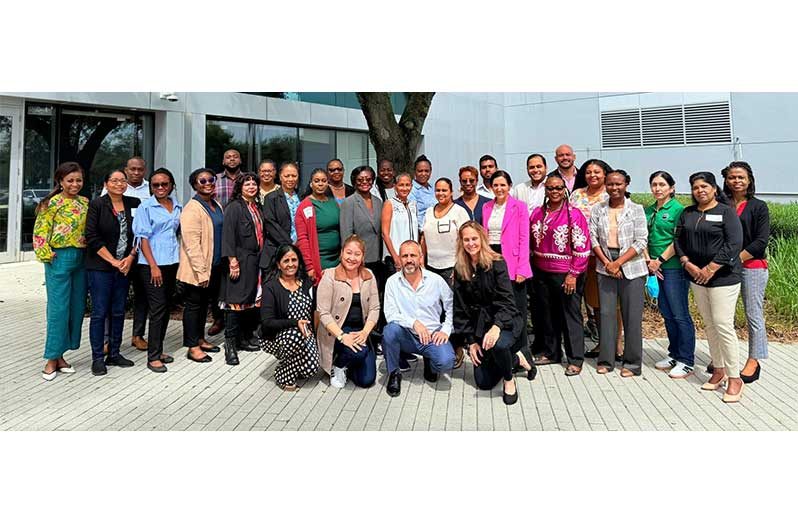THE Pan-Caribbean Partnership against HIV and AIDS (PANCAP) has successfully concluded a landmark Motivational Interviewing (MI) training programme at the University of Miami Miller School of Medicine, aimed at strengthening the Caribbean’s response to HIV.
Held from September 17 to 19, the intensive training equipped regional healthcare providers with advanced MI techniques, a patient-centred communication approach proven to enhance engagement, adherence, and retention in HIV prevention and treatment programmes.
Building on the success of a previous learning journey to Amsterdam earlier this year, the programme offered participants an in-depth exploration of MI, including strategies for engaging challenging patients, eliciting change talk, and developing concrete behaviour-change plans. The curriculum combined theoretical knowledge with hands-on demonstrations and role-playing exercises, allowing participants to immediately apply their skills in clinical and community settings.
“This training represents a transformative step in our regional HIV response,” said Dr. Wendy Telgt Emanuelson, Director of the PANCAP Coordinating Unit (PCU). “By equipping healthcare providers with motivational interviewing skills, we are fostering deeper trust between clinicians and patients. This approach will improve adherence to PrEP and treatment and empower individuals to take ownership of their health, bringing us closer to achieving the 95-95-95 targets and ending AIDS as a public health threat in the Caribbean.”
Participants also received updates on the latest scientific evidence and global guidelines, ensuring they leave with both technical knowledge and advanced communication skills to deliver cutting-edge care. Dr. Emanuelson noted that the training would have a ripple effect across the region: “We have now empowered a core group of champions who will return to their countries not just to practise these skills but to cascade them, strengthening the entire health system’s response.”
Dr. Shanti Singh Anthony, Knowledge Management Coordinator at the PCU, highlighted the strategic significance of the initiative: “The proficiency our clinicians demonstrated in integrating MI into consultations will create ripple effects across health systems. This is about building a more compassionate and effective HIV response that leaves no one behind.”
The training aligns with PANCAP’s ongoing efforts to strengthen regional capacity and advance progress toward the 95-95-95 targets, while supporting the upcoming Caribbean Regional Strategic Framework (CRSF) 2026–2030, which emphasises innovation, health system integration, and community-led solutions.
PANCAP expressed its gratitude to the faculty and staff of the University of Miami Miller School of Medicine, the Pan-American Health Organization, and The Global Fund for making the programme possible.



.jpg)








